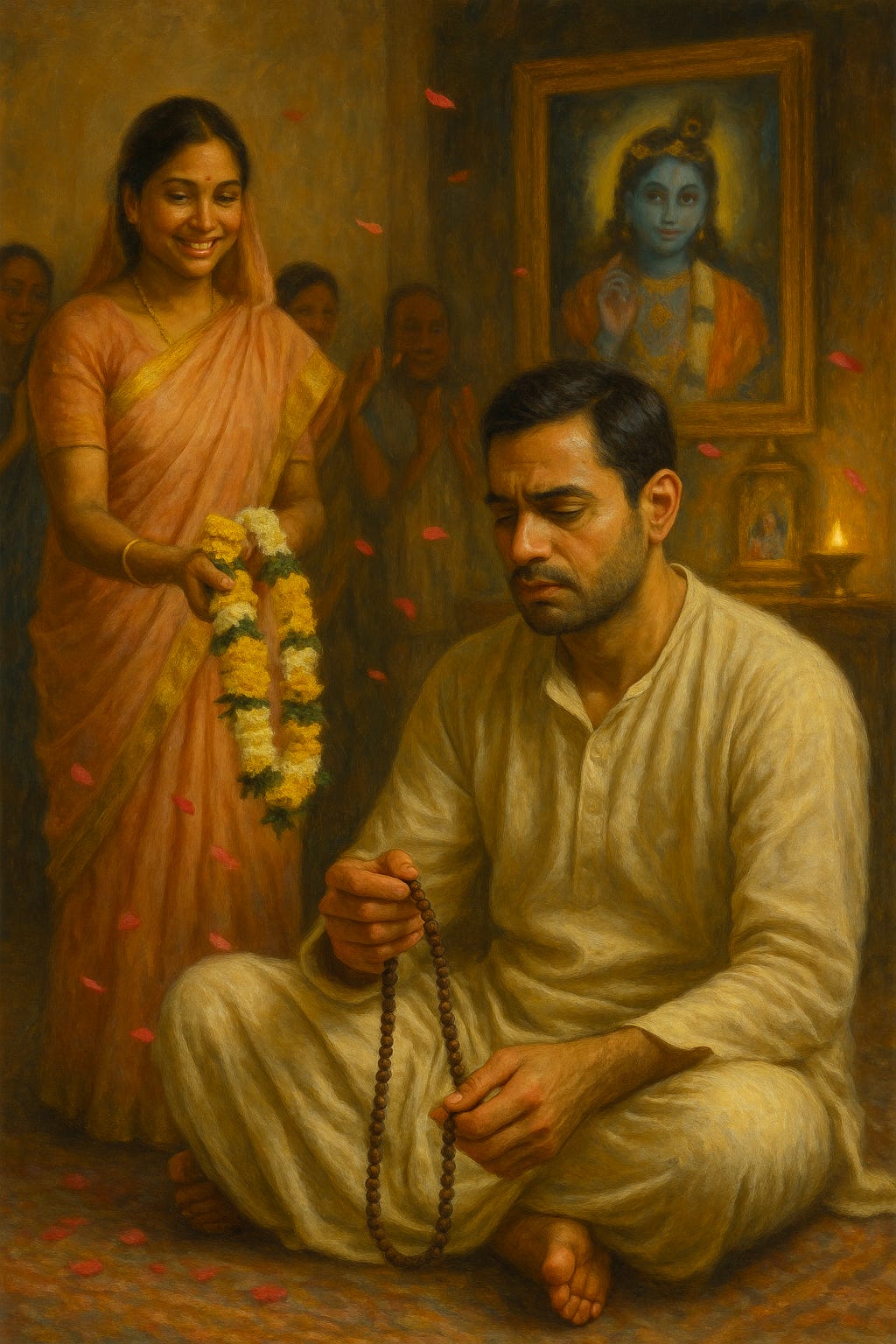Life questions: My wife receives more praise than me. I feel inferior. What to do?
This is the first article of a new format, where I will be trying to answer questions related to spiritual practice and challenges we face in our spiritual path.
This is the first article of a new format, where I will be trying to answer questions related to spiritual practice and challenges we face in our spiritual path. You can send personal questions through private messages, or using the chat or comments, and I will be answering them anonymously.
Today's question:
"I often feel jealous of my partner because she receives praise for whatever she does, while I rarely get any. This makes me doubt my own worth and wonder if I’m not good enough for her. How can I overcome these negative thoughts and build my confidence?"
This is quite a complicated question. There are several sides.
One side is the general psychological constitution of a man. It's natural for a man to want to feel superior to his wife. Prabhupada himself points out this face of the male ego in his purport to SB 3.23.2:
"A man's psychology and woman's psychology are different. As constituted by bodily frame, a man always wants to be superior to his wife, and a woman, as bodily constituted, is naturally inferior to her husband. Thus the natural instinct is that the husband wants to post himself as superior to the wife".
As Prabhupada explains, the general psychological disposition of a man is to feel superior to his wife, and in this way feel capable of protecting and maintaining her, and similarly, the general psychological disposition for a woman is to be with a man she considers stronger, more intelligent, more emotionally mature, etc. For a woman, attention is like oxygen, and similarly, for a man, respect is like oxygen. Just as one can't live without breathing, one can't survive in a relationship when this basic need is not fulfilled, so I understand that this situation must be difficult for you.
To avoid this kind of situation, traditional Vedic societies, taking this natural predisposition into account, would train the boys to be protective and responsible and the ladies to be submissive. This would create a dynamic that would make conjugal life easier, balancing the needs of both. Ladies would be attentive to not feeling superior to their husbands, understanding that this could jeopardize their marriages. There is, for example, the famous case of Gāndhārī, who voluntarily covered her eyes when she heard she was going to marry a blind man, so she would not feel superior to her husband in any way.
However, we don't live in a Vedic society, and no one can do this nowadays. If a lady can't use their talents and be praised for it, she will not be happy, and I believe you would probably also not be very happy with a depressed wife. Another point is that in Krsna Consciousness, the main principle is that we should use our talents for Krsna, and therefore artificially restricting the ladies is not very consistent with our own philosophy. Prabhupada also makes this point in several passages.
What is the solution then?
Instead of being bothered by what our wife or husband achieves, it is more productive to just focus on our own spiritual practice and development. Jealousy is a destructive feeling; it doesn't produce any positive results. Instead, it just dries us up and erodes our self-confidence. Instead of being jealous, a more Krsna-conscious approach is to appreciate our wife's qualities and service, and encourage her to further develop them. If instead of trying to put her down, we just direct our energy to our personal growth, and we support each other in this mutual effort, the outcome will be much better.
Another point is that people have different talents, and any given person (or, in fact, any living creature) will always do something better than we do. When Droṇācārya asked Yudhiṣṭhira to find someone who is lower than him, he returned with empty hands, because he observed that even animals and plants could do things he couldn't do; therefore, he couldn't say anyone was inferior to him.
Although it is natural for a man to want to feel superior to his wife in all respects, this is ultimately illusory, since in any case, a woman will always do many things better than he does. Instead, it is more productive to embrace these differences and cooperate in Krsna Consciousness. Some things we may do better, other things the partner may do better, and if we combine these positive qualities, we will go much further. She may be praised for things she does well, and you may be praised for other things that you do better, and both will feel encouraged and useful.
A final point is that most of us have a fundamentally equivocal idea about relationships. We often see our wife or husband as a competitor, someone we must defeat to exert our superiority, to be in command, to control, etc. This is, however, a very limited understanding. If we are together with a person, it means we are a team. When we are in a team, it is incredibly foolish to try to put our teammate down. On the contrary, we will want our teammate to play as best as possible, so together we may achieve victory. In this case, the stakes are high, since the opponent is the material illusion, and victory means an eternal life of bliss. If we understand the situation, we will be happy to have a wife or husband with the most wonderful qualities, it doesn't matter who is praised or not.
Krsna Consciousness is not about being the master, quite the opposite, it is all about being a good team player, and about reducing our ego, instead of trying to enforce it. This all becomes natural as we advance; therefore, the basics are to work on our chanting, association, study of the scriptures, etc., so we can have this solid foundation for our spiritual practice. When we are properly grounded in Krsna Consciousness, these things bother us a lot less.
If you read this article to the end, give it a like. This makes Substack recommend it to more people.
Read also:






This series is a great initiative. Thank you! I think maybe this person was never appreciated for what they did in their childhood, so their sense of self-worth has been jeopardized as an adult, and is manifesting in his adult relationships.
Hare Krishna
Very well said.